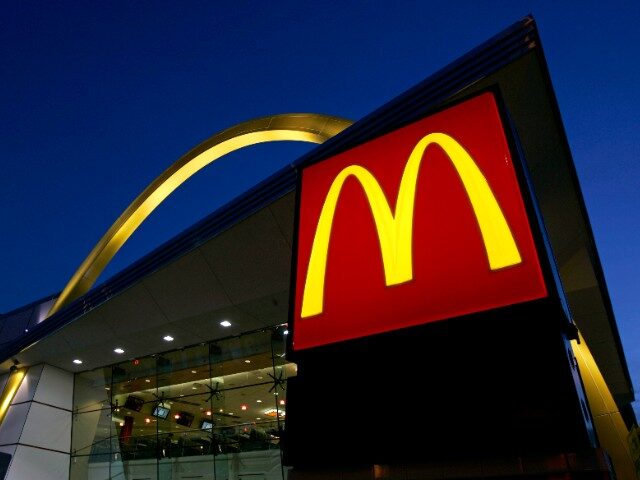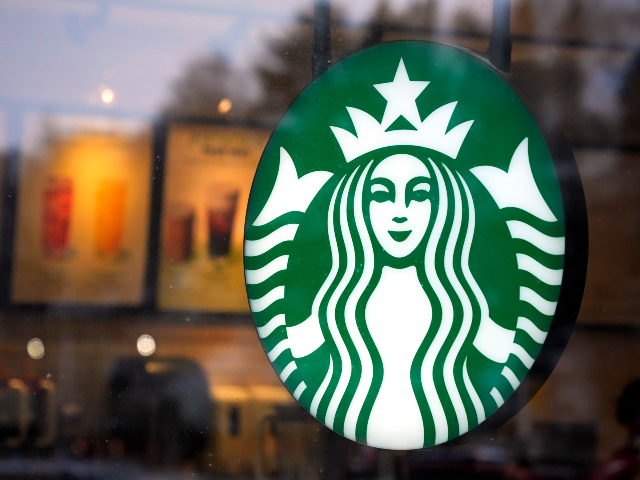Arab calls to boycott products associated with Israel, and even companies that merely do business in Israel, have begun hitting major U.S. brands such as McDonald’s and Starbucks.
Reuters took a stroll across the Middle East on Wednesday and found empty restaurants in Egypt, Jordan, Kuwait, and Morocco. Man-on-the-street interviews revealed energetic social media campaigns by Palestinian supporters to boycott any brand linked to Israel:
“No one is buying these products,” said Ahmad al-Zaro, a cashier at a large supermarket in the capital Amman where customers were choosing local brands instead.
In Kuwait City on Tuesday evening, a tour of seven branches of Starbucks, McDonald’s and KFC found them nearly empty.
In Rabat, the capital of Morocco, a worker at a Starbucks branch said the number of customers had dropped off significantly this week. The worker and the company gave no figures.
McDonald’s, a frequent boycott target, pushed back by claiming the online boycott campaigns are driven by “disinformation” that distorts the company’s stance on the Israel-Hamas war.
McDonald’s has attempted to remain neutral at the corporate level, despite haranguing from left-wingers that the company should denounce Israel’s counter-terrorism campaign in Gaza, but a McDonald’s franchise in Israel offered free meals to Israel Defense Forces (IDF) soldiers and first responders. Hamas sympathizers retaliated by vandalizing McDonald’s stores across the Middle East.
The vast reach and high profile of McDonald’s all but guarantees it will be attacked as a corporate symbol of America and its support for Israel, as has occurred several times since 9/11. Indonesian Islamist groups called for nationwide boycotts of the chain after the Israeli franchise gave free meals to IDF troops, even though McDonald’s Indonesia ostentatiously donated almost $100,000 to support the Palestinian cause.
Starbucks is also a high-profile easy target. A viral video in Turkey showed an irate Palestinian supporter knocking a cup of coffee from the hands of a Starbucks customer while yelling “Shame, shame!” Mobs have formed outside Starbucks stores, shouting at potential customers to avoid the coffee shop because it supposedly supports Israel:
İzmit’te bir grup Starbucks’ta oturanlara tepki gösterip kahvelerini döktühttps://t.co/NIl5l01h1F pic.twitter.com/gnBGChUAs8
— Gazete Pencere (@gazetepencere) November 12, 2023
One enterprising pro-Hamas activist planted a Bluetooth speaker outside a Starbucks in Istanbul and used it to broadcast messages such as, “The money you are currently paying to this organization is going to Gaza’s babies as bombs, blood, and death!”
American pro-Hamas activists have also called for Starbucks boycotts, even though the company steadfastly insists that it does not support Israel and is opposed to all violence.
“As a leadership team, we want to again express our deepest sympathy for those who have been killed, wounded, displaced and impacted following the heinous acts of terror, escalating violence and hate against the innocent in Israel and Gaza this week. Starbucks unequivocally condemns acts of hate, terrorism and violence,” the company said a few days after the Hamas atrocities of October 7.
Some of the activist outrage at Starbucks stems from the company sending a cease-and-desist letter to Starbucks Workers United, a union that was actively supporting Palestinian terrorism in the days after the October 7 atrocities. Starbucks corporate management said the union does not speak for the company and does not represent its “views, positions, or beliefs.” The cease-and-desist letter objected to the union using Starbucks’ logo in its propaganda.
This position outraged pro-Hamas activists, who bluntly stated that speaking out against the Starbucks Workers United union and its pro-Palestinian stance constituted support for Israel. Boycott efforts against Starbucks in the United States have not been as successful as those in Indonesia and the Middle East.
“The scale of the aggression against the Gaza strip is unprecedented. Therefore, the reaction, whether on the Arab street or even internationally, is unprecedented,” a member of the Palestinian Boycott, Divestment, Sanctions (BDS) movement told Reuters.
A McDonald’s corporate employee in Egypt told Reuters that sales were down almost 70 percent in October and November due to the boycotts. McDonald’s sales in Muslim-majority Malaysia are reportedly down 20 percent. Regional suppliers say orders from McDonald’s and Starbucks have declined by almost 50 percent.
On the other hand, Newsweek noted that McDonald’s and Starbucks share prices have risen 8 and 13 percent, respectively, since the Middle Eastern boycotts began. Reuters noted “no major impact” from pro-Palestinian boycott calls in Saudi Arabia, the United Arab Emirates, and Tunisia.


COMMENTS
Please let us know if you're having issues with commenting.